Pat Casey: Team USA Coach On How To Peak Physically And Mentally For A Big Race
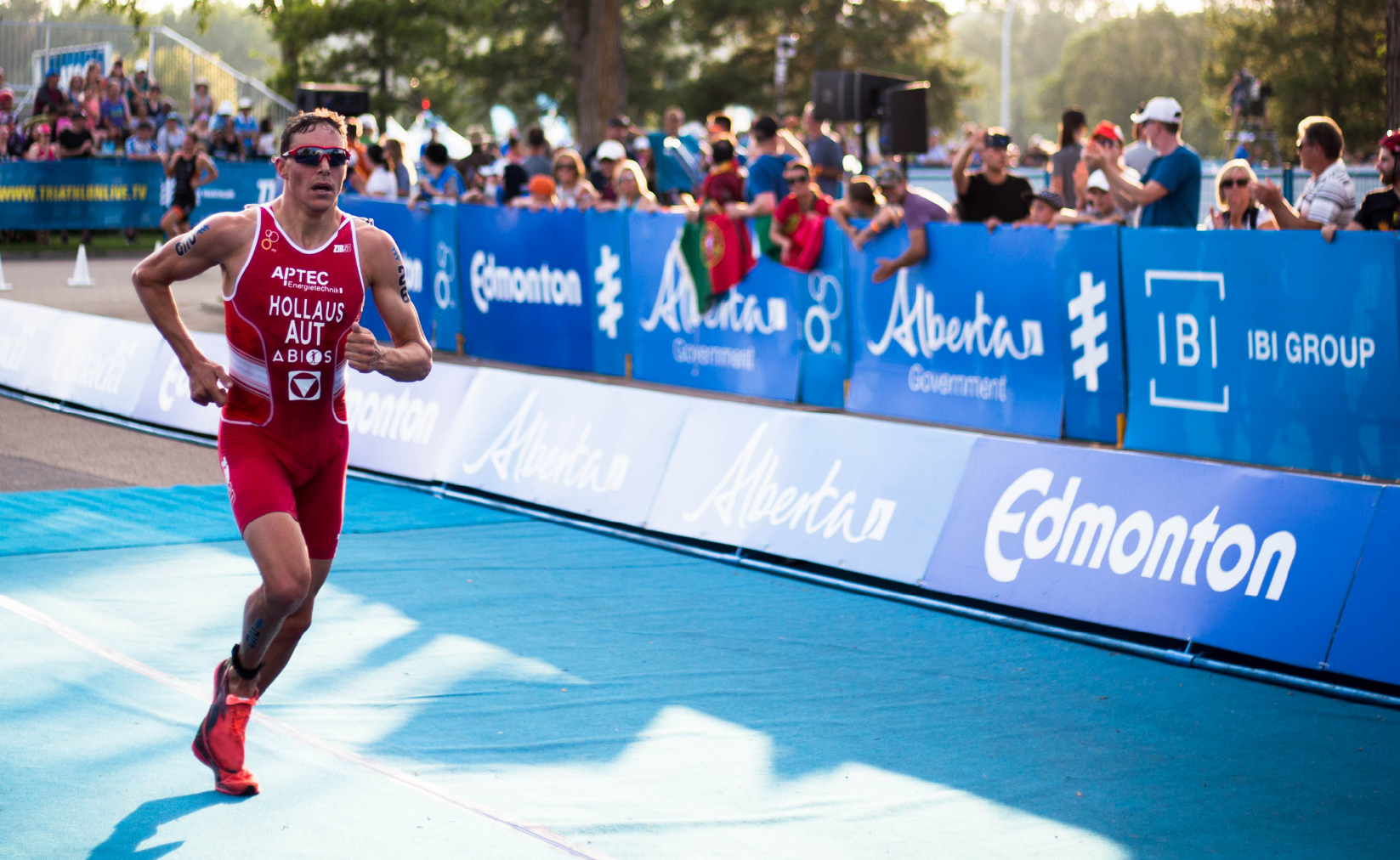
Pat Casey has been “wrenching and playing with bikes” for half his life.
Now more than 15 years after he first started working in bike stores, Pat and wife Heather own and run Peak State Fit in Salt Lake City, Utah, which specializes in endurance coaching, bike fitting, and consulting.
Much of Pat’s athletic experience is based in racing bikes - mountain, cross, road - and he has “dabbled in triathlon in the past”, but as a coach his career has taken him on to the international stage of duathlon and cross triathlon.
Pat, 30, recently returned from the the ITU Multisport World Championships in Pontevedra, Spain in his role as Team USA coach.
Now back in the swing of his regular (and hectic) life, Pat spoke to Innerforce to share his journey from bike mechanic to international coach, what his role with Team USA involves, and offers some great advice to help experienced and newbie endurance athletes to improve their performance.
Can you tell us a bit about your history and how you got to where you are today?
I was first exposed to triathlon through my time spent as a bike mechanic, then shortly thereafter became my wife's sherpa. Since my first local events volunteering and representing our shop, I have loved supporting and spectating at races, and playing a role sharing in athletes' successes.
My wife Heather (the triathlete in the family) and I met working in a triathlon store in Montgomery, Alabama (of all places, right?). I have worked in bike shops since I was 15 years old. I guess you could call me a "roadie", but I've spent most of my endurance sport life racing bikes.
I dabbled in triathlon in the past, but my coaching trajectory came through working directly with athletes and becoming immersed in the sport through consulting on the cycling, and learning from some great mentors on the swim and run.
When and where was your first triathlon? How was that experience?
My first triathlon was in Montgomery, Alabama in the Fall of 2011. Funny story - during my first sprint triathlon, I did a cannonball off the pier and lost my goggles. The 300 meter swim took me close to 10 minutes!! It was a pretty funny experience overall, but I definitely made up for the poor swim performance on the bike.
To add another humorous element, I forgot my jersey that day. So I ended up riding in just my bib shorts. The pictures were fantastic. To redeem myself, I'm making a comeback to triathlon this year at IRONMAN Lake Placid 70.3 in September! Wish me luck - I'm a much better swimmer now FYI.
What are your biggest triathlon achievements so far?
Honestly, they've all been through my experience and lens as a coach. I will say that the most fulfilling moments in my career have been seeing an athlete's technical skills, confidence, and grit evolve and become their own. Everyone is wired in a different way, and what works for some people doesn't work for everyone. You have to find your rhythm, and when I can help foster those connections with people, it feels really good.
Your are the Team USA Duathlon and Cross Triathlon coach - what does the role entail?
Indeed I am, and it has been a rewarding role to play for Team USA! I honestly feel that its a privilege to work with so many great people, and to share an experience like this year's Worlds in Spain is pretty surreal.
This year I served the Sprint and Standard Duathlon and Cross Triathlon teams, along with the Aquabike, Long Distance Triathlon, and Aquathlon teams as well.
For each team, I write a holistic training plan that is made available to everyone on Team USA - each is made to be specific to the discipline and race. This year's plans were 13 weeks long, because that was the time frame in which I was hired.
Last year, we extended the plan with a short base period, but the race was also later (beginning of July in Denmark) and we had a bit more lead time. I open up a line of communication for athletes to reach out, and mostly I just make myself available for people who want a bit of guidance, some consultation on equipment choice, nutrition planning on race day, etc.
I also provide some guidance through Facebook through a few "webinar" style live chats. Those were really helpful in starting conversations about the course and what to expect on race day.
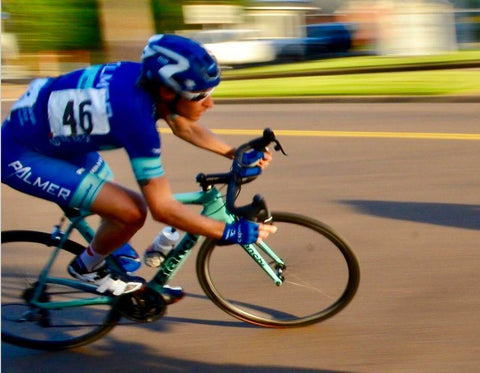
How was the Pontevedra World Championships? Was it a success?
In the way I measure success, I would say Team USA killed it. Our age group teams have some really talented athletes, but what is really awe-inspiring is to see people from all over the world sharing a common love for their sport.
We had some podium finishes and great individual results, but our job is really to support the athletes in any way we can so they're prepared, calm, and have a positive mindset about their race before they toe the line.
I can say that the Team USA staff was a dream team of individuals - everyone went above and beyond, which is a great environment to work in! We all motivate one another to be better, and I think the athletes felt that too.
As a strength and conditioning specialist, what would your advice be for someone looking to peak in time for a big endurance race?
This is a pretty complex question, but I'll defer to my physiology to give an answer that might be a good guideline for someone prepping for something big like an IRONMAN.
The biggest run workout generally falls five weeks out from IRONMAN, and longest ride typically 4 weeks out. The normal time frame for an athlete to create physiological adaptations is 21 days.
That is not to say the training efforts you perform two weeks out aren't important, but they don't hold as much purpose as the biggest sessions five and four weeks out that are specific to race demands, challenging, and accumulate a load of training stress to carry into those final weeks of specific preparation before your big race.
The best advice is to hire a coach, because life often throws us curveballs, and its tremendously helpful to have someone to look at your training objectively and to share your goal of having a successful race.
Mental tenacity is important to success in endurance sports - what exercises would you recommend for someone who wants to improve their mental training?
I've used meditation and different breathing practices. A friend and client recently taught me an introduction to Chi Gung which has been something really cool to begin practicing. I have also started doing some Wim Hof inspired cold water therapy - I like the challenge and it has become a method of meditation too!

What are some of the best pieces of endurance sport-related advice you ever received?
This has been my guideline for bike racing, but it applies in any endurance sport: stay present and race/train in the moment. Avoid focusing on what's 30 seconds down the road, or four hours down the road. Second best advice is to smile. Your brain will release endorphins, whether it's a fake smile or a real one!
Triathlon and other endurance sports can be intimidating to the newbie - what would you say to someone interested in getting involved but might be anxious about those first steps?
It definitely can be intimidating. I would say join a local club to meet others who are into the sport! Many clubs offer training camps, and those are great opportunities to immerse yourself in the sport for a few days and really test the waters!
Then, make it a point to mark a race on your calendar to build your training around it. You don't have to go crazy, but familiarizing yourself with the distance, the sensations of running after cycling, and being able to sight and see where you're going in open water will help bring you into your first race confident and ready to tackle the day.
If getting into an outdoor tri is intimidating, look for an indoor tri. These can give you the feeling of racing and challenging yourself without having as many unknown variables.
Pat and Heather Casey are the founders and owners of Peak State Fit, providing endurance and lifestyle coaching, fitness training and bike services.

Pat Casey has been “wrenching and playing with bikes” for half his life.
Now more than 15 years after he first started working in bike stores, Pat and wife Heather own and run Peak State Fit in Salt Lake City, Utah, which specializes in endurance coaching, bike fitting, and consulting.
Much of Pat’s athletic experience is based in racing bikes - mountain, cross, road - and he has “dabbled in triathlon in the past”, but as a coach his career has taken him on to the international stage of duathlon and cross triathlon.
Pat, 30, recently returned from the the ITU Multisport World Championships in Pontevedra, Spain in his role as Team USA coach.
Now back in the swing of his regular (and hectic) life, Pat spoke to Innerforce to share his journey from bike mechanic to international coach, what his role with Team USA involves, and offers some great advice to help experienced and newbie endurance athletes to improve their performance.
Can you tell us a bit about your history and how you got to where you are today?
I was first exposed to triathlon through my time spent as a bike mechanic, then shortly thereafter became my wife's sherpa. Since my first local events volunteering and representing our shop, I have loved supporting and spectating at races, and playing a role sharing in athletes' successes.
My wife Heather (the triathlete in the family) and I met working in a triathlon store in Montgomery, Alabama (of all places, right?). I have worked in bike shops since I was 15 years old. I guess you could call me a "roadie", but I've spent most of my endurance sport life racing bikes.
I dabbled in triathlon in the past, but my coaching trajectory came through working directly with athletes and becoming immersed in the sport through consulting on the cycling, and learning from some great mentors on the swim and run.
When and where was your first triathlon? How was that experience?
My first triathlon was in Montgomery, Alabama in the Fall of 2011. Funny story - during my first sprint triathlon, I did a cannonball off the pier and lost my goggles. The 300 meter swim took me close to 10 minutes!! It was a pretty funny experience overall, but I definitely made up for the poor swim performance on the bike.
To add another humorous element, I forgot my jersey that day. So I ended up riding in just my bib shorts. The pictures were fantastic. To redeem myself, I'm making a comeback to triathlon this year at IRONMAN Lake Placid 70.3 in September! Wish me luck - I'm a much better swimmer now FYI.
What are your biggest triathlon achievements so far?
Honestly, they've all been through my experience and lens as a coach. I will say that the most fulfilling moments in my career have been seeing an athlete's technical skills, confidence, and grit evolve and become their own. Everyone is wired in a different way, and what works for some people doesn't work for everyone. You have to find your rhythm, and when I can help foster those connections with people, it feels really good.
Your are the Team USA Duathlon and Cross Triathlon coach - what does the role entail?
Indeed I am, and it has been a rewarding role to play for Team USA! I honestly feel that its a privilege to work with so many great people, and to share an experience like this year's Worlds in Spain is pretty surreal.
This year I served the Sprint and Standard Duathlon and Cross Triathlon teams, along with the Aquabike, Long Distance Triathlon, and Aquathlon teams as well.
For each team, I write a holistic training plan that is made available to everyone on Team USA - each is made to be specific to the discipline and race. This year's plans were 13 weeks long, because that was the time frame in which I was hired.
Last year, we extended the plan with a short base period, but the race was also later (beginning of July in Denmark) and we had a bit more lead time. I open up a line of communication for athletes to reach out, and mostly I just make myself available for people who want a bit of guidance, some consultation on equipment choice, nutrition planning on race day, etc.
I also provide some guidance through Facebook through a few "webinar" style live chats. Those were really helpful in starting conversations about the course and what to expect on race day.

How was the Pontevedra World Championships? Was it a success?
In the way I measure success, I would say Team USA killed it. Our age group teams have some really talented athletes, but what is really awe-inspiring is to see people from all over the world sharing a common love for their sport.
We had some podium finishes and great individual results, but our job is really to support the athletes in any way we can so they're prepared, calm, and have a positive mindset about their race before they toe the line.
I can say that the Team USA staff was a dream team of individuals - everyone went above and beyond, which is a great environment to work in! We all motivate one another to be better, and I think the athletes felt that too.
As a strength and conditioning specialist, what would your advice be for someone looking to peak in time for a big endurance race?
This is a pretty complex question, but I'll defer to my physiology to give an answer that might be a good guideline for someone prepping for something big like an IRONMAN.
The biggest run workout generally falls five weeks out from IRONMAN, and longest ride typically 4 weeks out. The normal time frame for an athlete to create physiological adaptations is 21 days.
That is not to say the training efforts you perform two weeks out aren't important, but they don't hold as much purpose as the biggest sessions five and four weeks out that are specific to race demands, challenging, and accumulate a load of training stress to carry into those final weeks of specific preparation before your big race.
The best advice is to hire a coach, because life often throws us curveballs, and its tremendously helpful to have someone to look at your training objectively and to share your goal of having a successful race.
Mental tenacity is important to success in endurance sports - what exercises would you recommend for someone who wants to improve their mental training?
I've used meditation and different breathing practices. A friend and client recently taught me an introduction to Chi Gung which has been something really cool to begin practicing. I have also started doing some Wim Hof inspired cold water therapy - I like the challenge and it has become a method of meditation too!

What are some of the best pieces of endurance sport-related advice you ever received?
This has been my guideline for bike racing, but it applies in any endurance sport: stay present and race/train in the moment. Avoid focusing on what's 30 seconds down the road, or four hours down the road. Second best advice is to smile. Your brain will release endorphins, whether it's a fake smile or a real one!
Triathlon and other endurance sports can be intimidating to the newbie - what would you say to someone interested in getting involved but might be anxious about those first steps?
It definitely can be intimidating. I would say join a local club to meet others who are into the sport! Many clubs offer training camps, and those are great opportunities to immerse yourself in the sport for a few days and really test the waters!
Then, make it a point to mark a race on your calendar to build your training around it. You don't have to go crazy, but familiarizing yourself with the distance, the sensations of running after cycling, and being able to sight and see where you're going in open water will help bring you into your first race confident and ready to tackle the day.
If getting into an outdoor tri is intimidating, look for an indoor tri. These can give you the feeling of racing and challenging yourself without having as many unknown variables.
Pat and Heather Casey are the founders and owners of Peak State Fit, providing endurance and lifestyle coaching, fitness training and bike services.
SEE WHAT CUSTOM APPAREL LOOKS LIKE
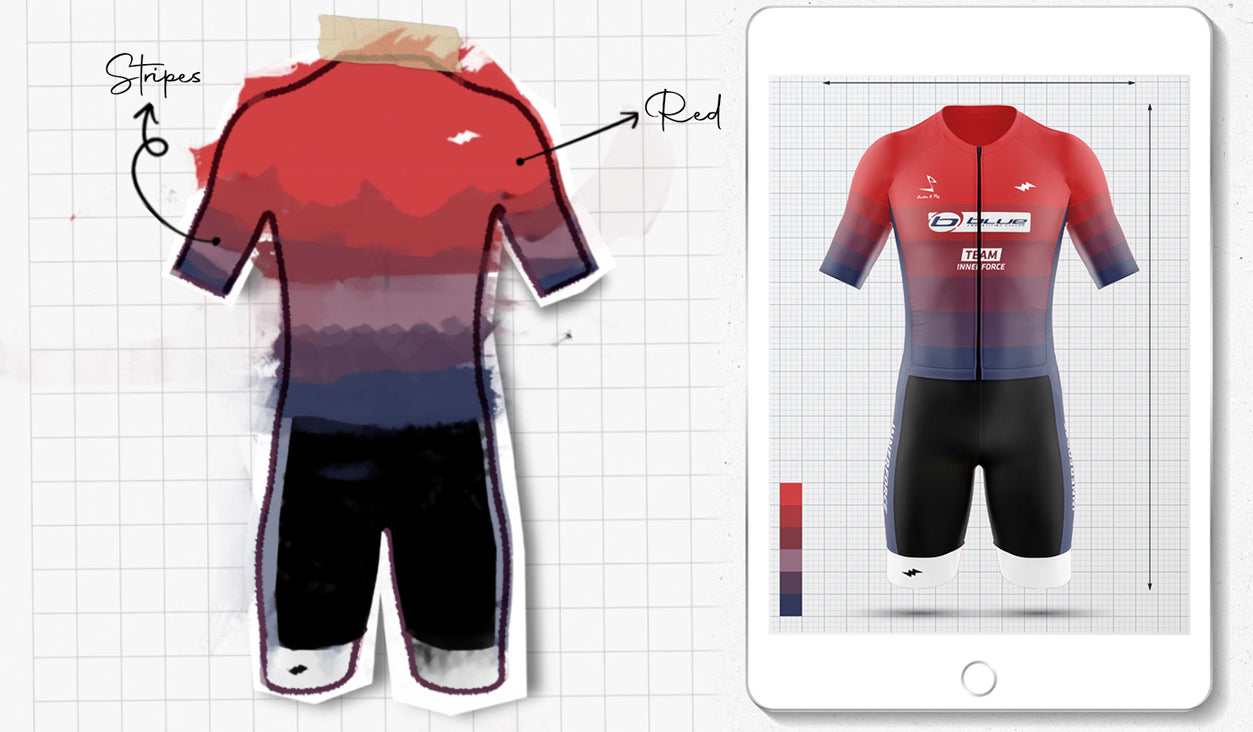
GEAR UP
MORE FROM THE BLOG
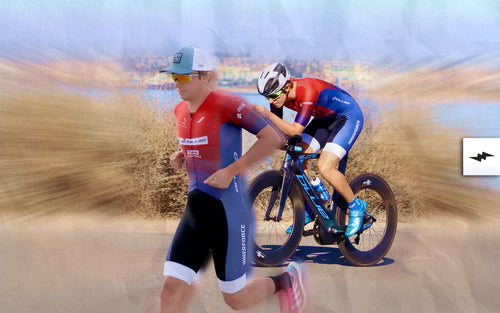
How Often Should I Be Doing Brick Sessions?
Arguably, the most difficult part of a triathlon is the run. While the swim is the most technically challenging leg,...
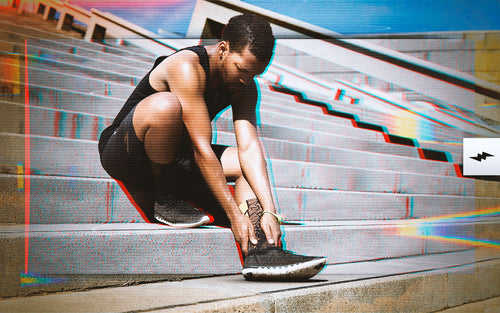
How To Bulletproof Your Ankles
Given how dependent we are on our ankles, whether we are swimmers, runners or cyclists, it is mind-boggling that most...
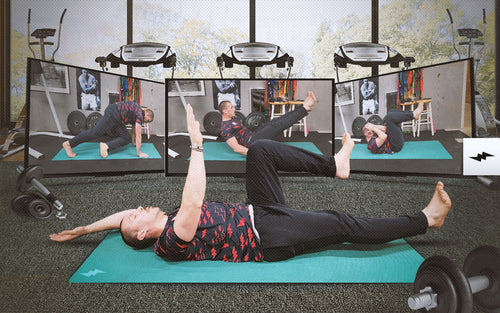
15-Minute Ab Workout
I think it is fair to say that there is nobody out there that doesn’t want to have a 6-pack....
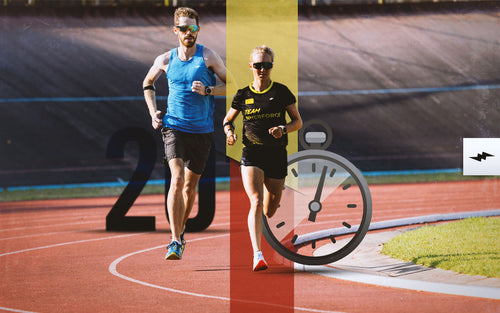
20 Minute Training Ideas For Endurance Athletes
Seriously? 20 minutes? We are endurance athletes. What most of us consider to be a ‘short workout’ would have most...



